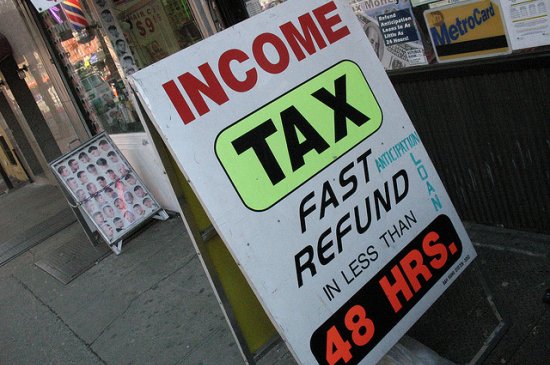
Discharged debt won't increase income taxes
Outside of bankruptcy, if a creditor writes off all or part of a debt, they will usually issue a 1099-C. This converts the forgiven or written off debt into taxable income. It may not make sense for debt to become income, but it's the law. The idea is that by not paying that debt, you have additional income freed up. This is known as implied income.
But any debt discharged as part of a bankruptcy will not trigger a 1099-C or additional income taxes. However, some creditors may issue a 1099-C even if your debt was covered in the bankruptcy. Also, if you were issued a 1099-C for a written off debt and then subsequently filed bankruptcy and included that debt, you may be able to negate the 1099-C by raising your bankruptcy as a defense.
Bankruptcy may cause some income taxes to be discharged
If you have back income taxes, bankruptcy may provide a tax relief, as well as a debt relief, solution. Depending on the circumstances, some unpaid income taxes can be written off. The first consideration is that you must have filed your income tax returns on time, even though you couldn't pay them. If you don't file, the IRS will file returns on your behalf.
Amounts owed on these substitute returns are not eligible for bankruptcy discharge. But tax debts on timely filed returns that are three years old or longer will likely be eligible for relief. The timing of your bankruptcy is very important if you have outstanding tax debts. Consult a reputable North Carolina bankruptcy attorney to discuss the best time to file to maximize this tax benefit.
Other tax debts may not be eligible for discharge no matter what
If you owned a business or had employees, certain business taxes will not be eligible for bankruptcy discharge no matter what. Payroll taxes including those you withheld from payroll as well as employer payroll taxes such as FICA are not eligible for discharge and will survive the bankruptcy filing. Sales taxes collected from customers are also not eligible for relief or discharge.
Consult a bankruptcy attorney and a CPA if you have serious tax issues
If you owe back taxes and are overwhelmed by debt, it may be wise to consult a tax professional or CPA, along with a bankruptcy attorney, to be sure you get the best possible debt relief including discharge of income taxes to the maximum allowed by law. These two professionals working together will get you the best results, particularly if you owned a business or have very complex taxes.
